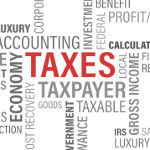National law firm Dykema announced the addition of Richard L. Lieberman to its Taxation Practice Group as senior counsel in the firm’s Chicago office.
Lieberman joins Dykema after spending more than eight years as a partner with Burke, Warren, MacKay & Serritella, P.C., where he served as Chair of the firm’s Tax and Employee Benefits practice. Prior to that, he was a principal at Deloitte Tax LLP for more than a decade.
In a release, the firm said Lieberman has more than 30 years of experience in a broad range of federal and state tax matters, with emphasis on tax issues related to real estate, mergers & acquisitions, joint ventures, restructurings, partnerships, limited liability companies, and S corporations. He also advises clients on the tax aspects of executive compensation arrangements, including designing and advising on the implementation of executive, equity, and deferred compensation programs.
In addition, Lieberman has been actively involved in representing not-for-profit organizations in both obtaining and retaining exemption from federal, state, and local taxes, avoiding unrelated business income tax, and addressing private inurement and intermediate sanctions issues. He has long represented clients in connection with adjustments proposed by the Internal Revenue Service and a myriad of state Departments of Revenue.
“Richard brings much needed state and local tax, as well as transactional, experience to our Chicago office and the firm’s national platform,” said Mike Cumming, Leader of Dykema’s Taxation Practice Group.
Lieberman earned a J.D., with high honors, from IIT/Chicago-Kent College of Law, an LL.M. (International Legal Studies) from New York University School of Law, an LL.M. (Taxation) from DePaul University College of Law, and a B.B.A. from the University of Wisconsin-Madison.




